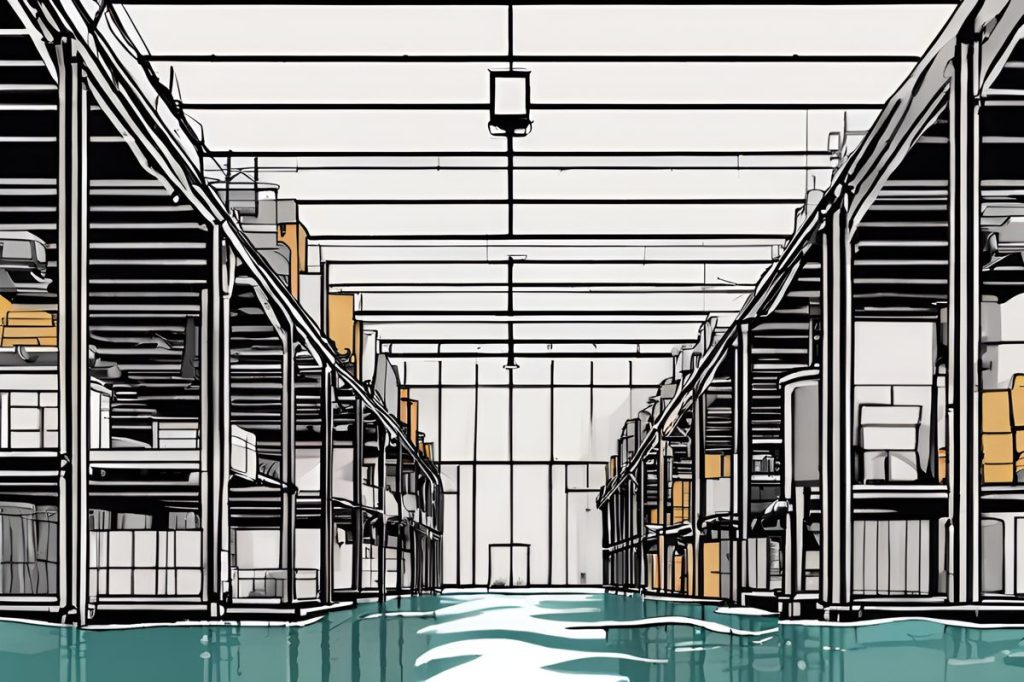The warehouse flood in Strovolos, Cyprus, damaged 105,401 medicine packages, costing €880,000, leading to concerns about storage safety. Officials have ordered a restock, formed an investigative committee, and planned the relocation of the warehouse, emphasizing the importance of accountability and oversight.
What are the consequences and responses to the warehouse flood that impacted medicine supply?
The warehouse flood resulted in the damage of approximately 105,401 medicine packages, costing an estimated €880,000. In response, officials ordered a restock and formed a committee to investigate the damage. The incident raised concerns about storage safety and oversight, leading to calls for accountability and the planned relocation of the warehouse.
A Disastrous Event
On a stormy day that brought a deluge of hail, a warehouse located in the industrial zone of Strovolos, within the Nicosia district, faced a calamity. The warehouse, tasked with the responsibility of storing medicines, suffered extensive damage. Unfortunately, the building’s inadequacy for storing such sensitive items was a known issue, flagged by authorities as early as the end of 2019.
During this incident, a preliminary assessment revealed that around 105,401 packages of medicine, equating to 149 different pharmaceuticals, were compromised. The estimated financial toll of the damage was a staggering €880,000. The warehouse’s condition post-flood was daunting, to say the least, and the facility was deemed completely unfit for use.
Regulatory Oversight and Inspection
Elena Panayiotopoulou, head of the health ministry’s pharmaceutical services, informed that the oversight of medicine warehouses was transferred to the ministry’s purchasing and supplies directorate in 2017. Following concerns, a report in November 2019 highlighted several issues with the premises, including a worn floor, lack of temperature control, absent insect traps, cluttered spaces, and roof cracks. Most disturbing was the discovery that the area meant for recalled medicines was not secure.
Despite the clear signs of disrepair, it was noted that no further inspections had occurred since the report. The negligence in maintaining the facility led to not just the major incident but also two additional water leak incidents in the previous year.
Financial Implications and Planned Actions
The financial ramifications of the flooding extend beyond the immediate loss of medicines. It was uncovered that the warehouse was originally leased for a mere €6,600 a year by a government service within the health ministry. It was then subleased to another service within the same ministry for a far higher annual cost of €135,000. This dubious financial arrangement came to light following a report by the Audit Office in 2018.
In response to the disaster, officials have reportedly ordered a restock of the damaged medicines. Furthermore, a specialized committee has been established to investigate the extent of the damage, particularly whether the medicines within the ruined packages were also affected.
The Aftermath and Accountability
The House health committee summoned officials to report on the incident and discuss the future of the warehouse, which had been scheduled for relocation in February 2020—a decision delayed by the COVID-19 pandemic. The relocation was confirmed again in February 2024, with hopes to complete the move by October.
Following the incident, MPs raised concerns about why earlier recommendations, like those in the 2018 audit report, were not followed. These concerns underscore the importance of proper storage for pharmaceuticals, especially those for specialized therapies requiring health ministry approval.
Chair of the House health committee, Efthymios Diplaros, and other MPs expressed their determination for a thorough investigation. They sought clarity on the event and emphasized the need for accountability should any negligence be confirmed.
What are the consequences and responses to the warehouse flood that impacted medicine supply?
The warehouse flood resulted in the damage of approximately 105,401 medicine packages, costing an estimated €880,000. In response, officials ordered a restock and formed a committee to investigate the damage. The incident raised concerns about storage safety and oversight, leading to calls for accountability and the planned relocation of the warehouse.
What were the conditions of the warehouse before the flood?
The warehouse in Strovolos had known issues flagged as early as the end of 2019, including a worn floor, lack of temperature control, absent insect traps, cluttered spaces, and roof cracks. Despite these issues, no further inspections occurred, leading to the catastrophic flood that damaged over 100,000 medicine packages.
What financial implications were revealed after the warehouse flood?
The warehouse was leased for a low fee of €6,600 annually by a government service within the health ministry, but was subleased for a significantly higher cost of €135,000 annually to another service within the same ministry. This financial arrangement was brought to light following an Audit Office report in 2018.
What actions are being taken following the warehouse flood?
Officials have ordered a restock of the damaged medicines and formed a committee to investigate the extent of the damage. The warehouse is planned to be relocated, with the process initially delayed by the COVID-19 pandemic but confirmed for relocation in February 2024 with a target completion date of October. MPs are emphasizing the importance of accountability and oversight in the aftermath of the disaster.

